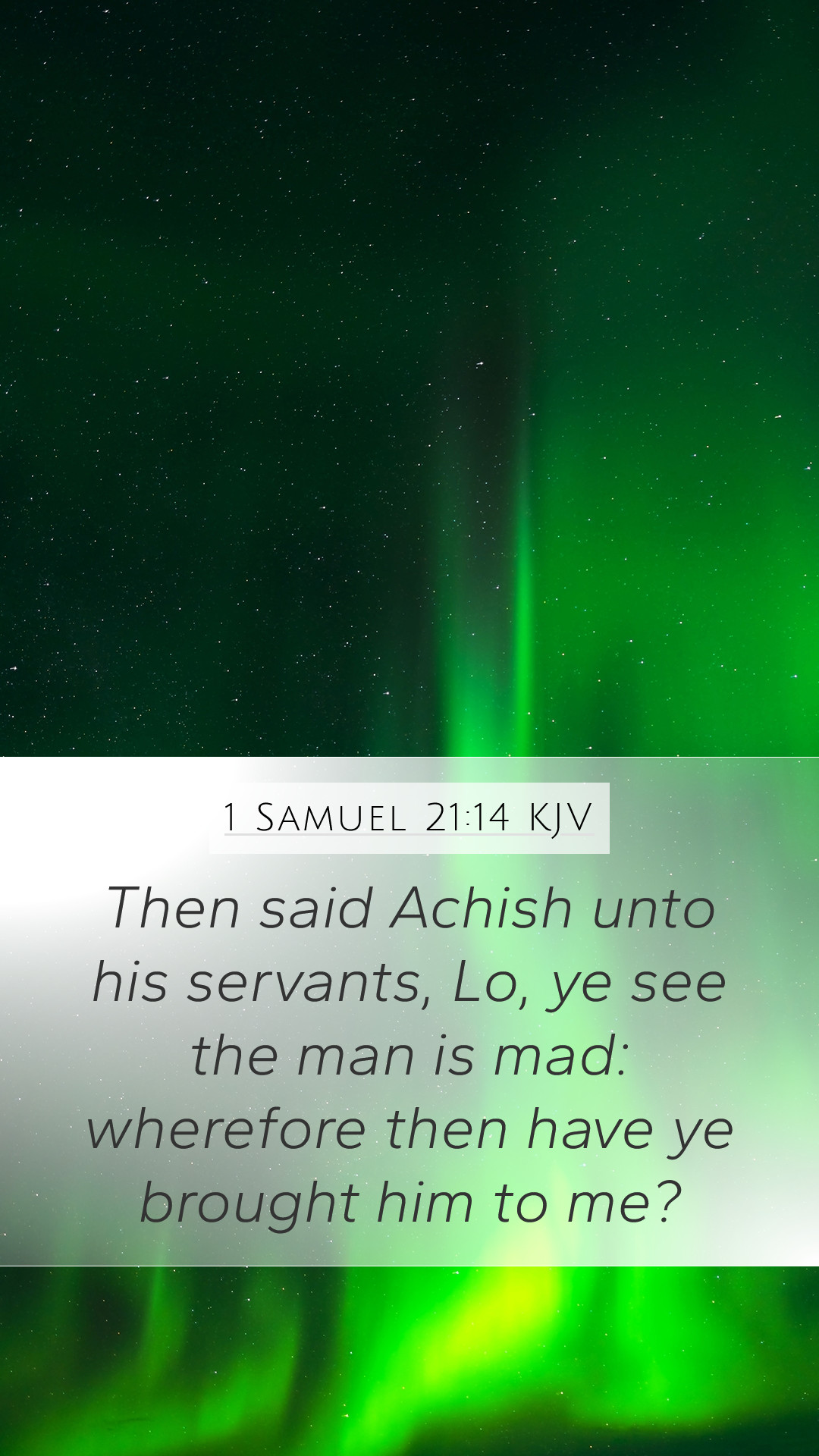Understanding 1 Samuel 21:14
Bible Verse: 1 Samuel 21:14
Verse Text: "Then said Achish unto his servants, Lo, ye see the man is mad: wherefore then have ye brought him to me?"
Meaning of 1 Samuel 21:14
This verse is set in a significant narrative where David, who is fleeing from Saul, seeks refuge among the Philistines. Achish, the king of Gath, recognizes David’s feigned madness as a strategy for survival. The examination of this verse reveals themes of deception, survival, and the complexities of human judgment.
Insights from Public Domain Commentaries
- Matthew Henry:
Henry emphasizes the futility and irony in David's situation. David, a man after God's own heart, is reduced to acting madly to escape persecution. This reflects the vulnerability of even the most faithful when placed in dire circumstances. Henry reveals how David’s state forces us to question our own responses to pressure.
- Albert Barnes:
Barnes highlights Achish's perspective, presenting him as a figure demonstrating wisdom in recognizing madness. He remarks on the societal customs of the time, whereby outward appearances dictated acceptance and treatment. Barnes concludes that Achish's reaction illustrates a common human instinct to judge others based on superficial signs rather than deeper truths.
- Adam Clarke:
Clarke explores the cultural context surrounding David’s act. He notes that madness was often linked to spiritual possession or divine abandonment in ancient times. Clarke suggests that David's behavior ultimately reflects his innovative approach to survival under extreme duress, showcasing the lengths to which individuals might go in the avoidance of danger.
Thematic Analysis
This narrative serves to illustrate several key themes:
- Deception as a Survival Tool: David's act of madness was a calculated decision to protect himself. This suggests a broader application that sometimes, in the face of oppression, unconventional measures are employed for self-preservation.
- Human Judgment Versus Divine Insight: Achish's reaction reflects human limitations in understanding the true nature of events, contrasting with God's omniscience. This dichotomy calls believers to trust divine insight over human perception.
- Desperation and Faith: David's plight highlights the tension between desperation and faith. While he resorts to pragmatism, underlying his actions is the faith that God will provide protection even in unorthodox manners.
Reflection and Application
For contemporary readers, 1 Samuel 21:14 invites introspection into how one navigates crises. It raises questions about the morality of our survival tactics, the choices we make in moments of fear, and the distinctions between public perception and internal faith.
Cross References
- Psalm 34:1-3 - David expresses trust in God amidst adversity.
- 1 Samuel 21:10 - David’s initial flight to Gath illustrates his desperation.
- 1 Samuel 22:1-2 - David eventually gathers a group around him post-crisis.
Conclusion
The exploration of 1 Samuel 21:14 offers profound insights into human behavior, the nature of faith under pressure, and the perennial struggle between appearance and reality. These themes are relevant in both biblical study and in the complexities of modern life.
Utilizing Bible verse meanings, interpretations, and explanations enhances our understanding of Scripture, guiding us through difficult passages and enriching our spirituality.


